My music brings people together
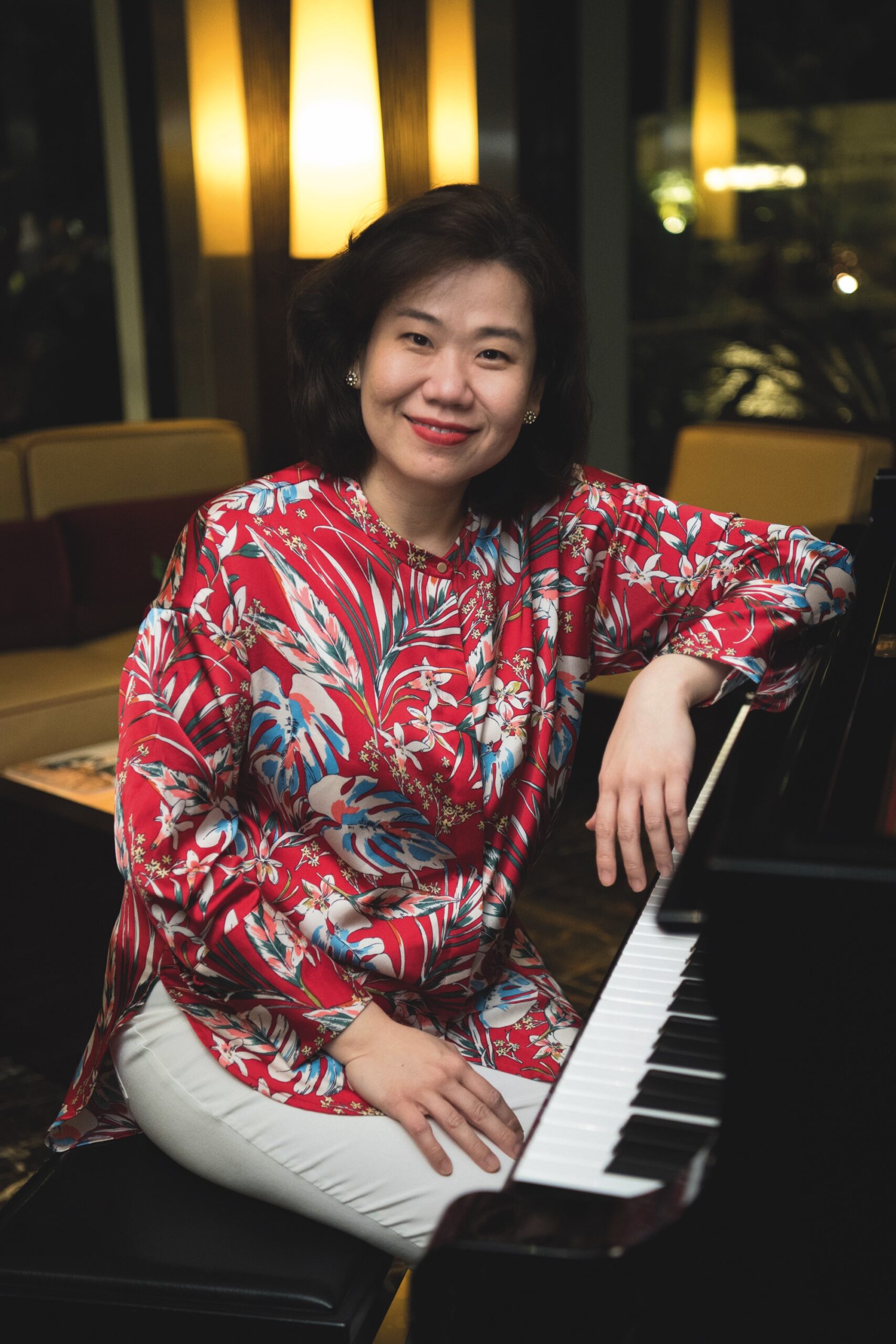
Prof. Claudia Yang
Text: Martina Hošková and M.Zisso; Photo: Archive
We met at the National Day of Malaysia in Prague, organized by H.E. Ms. Suzilah Binti Mohd Sidek. Was it your first visit to Prague?
I already visited Prague once before, during my studies in Vienna. If I am not mistaken, it was around 1992. I fell in love with the city at first sight. After that, I hadn´t been here until August 2024 when Ambassador Suzi invited me to give a concert celebrating Malaysian National Day.
However, in April 2001, I was touring with the Prague Symphony Orchestra through Chinese Beijing, Shanghai, Shenyang and Dalian as a soloist. I still remember I played Beethoven’s Piano Concerto No.3 and Chopin’s Piano Concerto No.1. The concerts were very successful.
You were born in Malaysia. Please, tell us about your homeland.
I am very proud of being born as a Malaysian. Malaysia is a multi-racial country where different races live harmoniously and happily together which has deepened my understanding of the importance of tolerance and acceptance as a musician. Encountering diverse audiences from various backgrounds, national identities, and religious beliefs allows me to approach music with an open and bigger heart. I believe this connection enables my audience to feel the harmony, love, and joy in the music I perform. I enjoy seeing many people brought together by my music.
My hometown of Muar, Johor is located in the southern part of Peninsular Malaysia. It is a historical and cultural town, also famous for its food and coffee. It is recognised as one of the cleanest cities in Southeast Asia. After I left Muar in 1991 for my music studies in Vienna, my family moved to Kuala Lumpur. My last visit to Muar was in 2019, 25 years after my departure, and I was very surprised to see that not much had changed. It is proof of Muarians being very committed to inheritance – we love traditional culture.
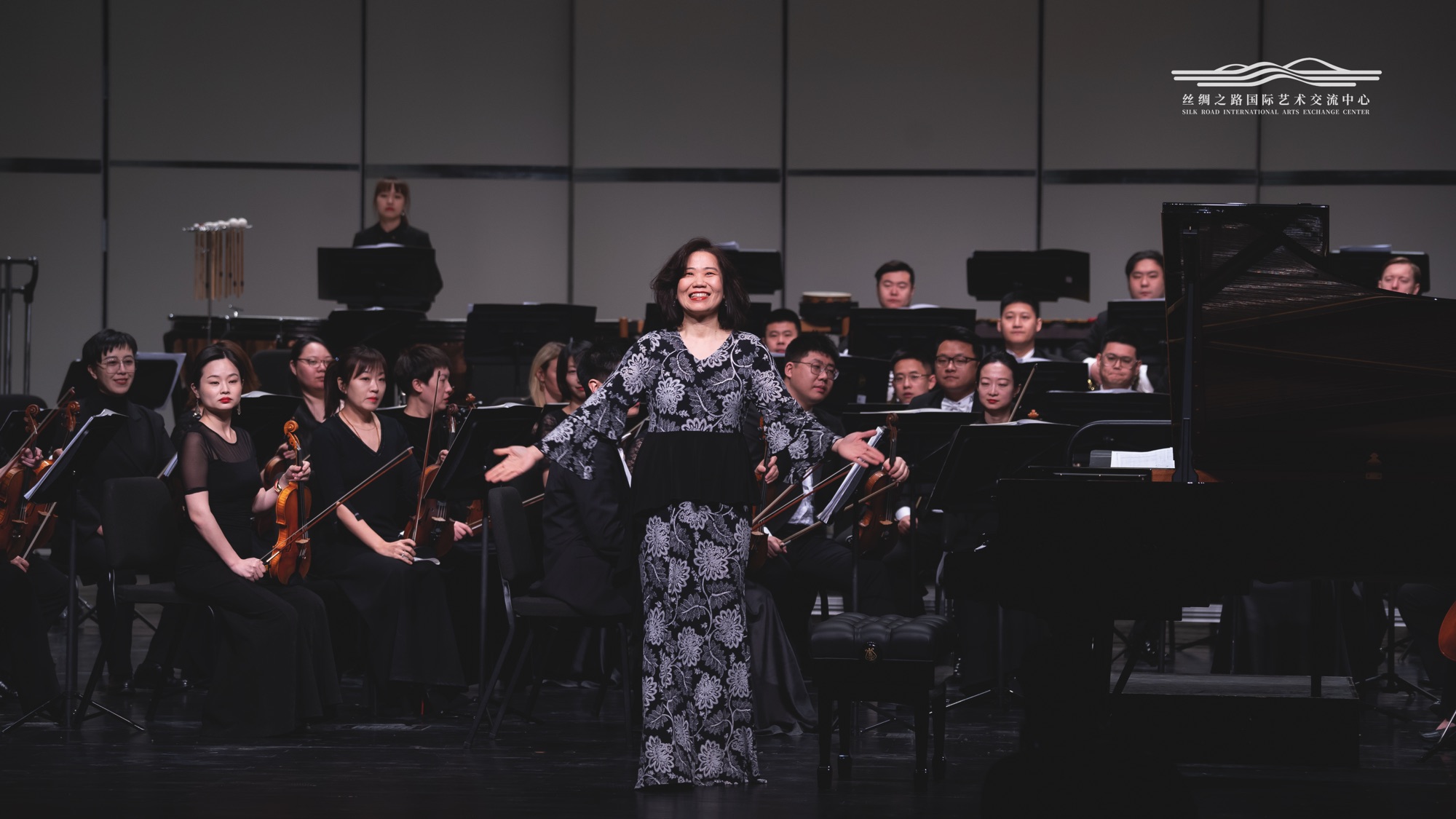
Prof. Claudia Yang
You began your piano studies at the age of five. What did the life of a talented Malaysian girl look like?
When I was little, there was a lady who came to our house every week to do the cleaning. She told my mum that our neighbour bought an upright piano for their son, and she advised my mum to also allow me to learn the piano. In Muar, there was a new Yamaha Music School just being opened, so my mum really took this advice seriously and did send me to a Junior Music Course which was developed from the Suzuki method.
My first teacher in this Junior Class later became my piano mentor. She discovered my musical talent at the very beginning and told my mum that I have very good ears and memory. After a few weeks of lessons, she wanted me to start one-to-one piano lessons. My teacher was very musical too, and she always reminded me to sing and breathe while playing. When I was five, I performed publicly for the first time.
Is it correct to say that your parents´ support played an essential role in developing your talent at such an early age?
Of course. Devoted music lessons for a young child will never succeed without devoted and committed parents. My mum would bring me to piano lessons by trishaw. She could not drive and back then no taxis were available. I always enjoyed sitting in a trishaw, looking around, and enjoying the natural cool wind. That was one of the reasons why I really enjoyed going to music lessons.
My mum was always with me while I was having the lesson, so she could help supervise me at home later on, even though she did not read music. She would remind me of what my teacher said. My dad loved to listen to me play once in a while. I remember his favourite piece was the Blue Danube Waltz by Johann Strauss.
Can you name the musicians who influenced your music most?
They were my three piano professors while I was studying in Vienna – Professor Diano Iliew, Professor Paul Badura Skoda and Professor Ludwig Hoffmann. Through studying under Paul Badura-Skoda, I learned the authentic way of interpreting music composed during the Classical Period, also until early romantic especially music by Franz Schubert. Ludwig Hoffmann was a virtuosic pianist who recorded all piano pieces by Franz Liszt. He loved to give lessons from recording as he wanted his students to listen to themselves. He loved microphones. The first professor whom I studied with in Vienna was Dianko Iliew. He taught me how to “produce” beautiful tone colour and deep sound without being tense and hard. Also in the summer of 1994, I visited Lviv for private lessons with Professor Orysia Sterniuk. When I was there, I attended many live concerts and got to know many outstanding musicians from Ukraine.
I learned how to play the piano with deep breaths and long phrases which are most of the time very challenging to the pianists as we easily make “percussive” sounds.
I am very lucky and blessed to have studied with them all.
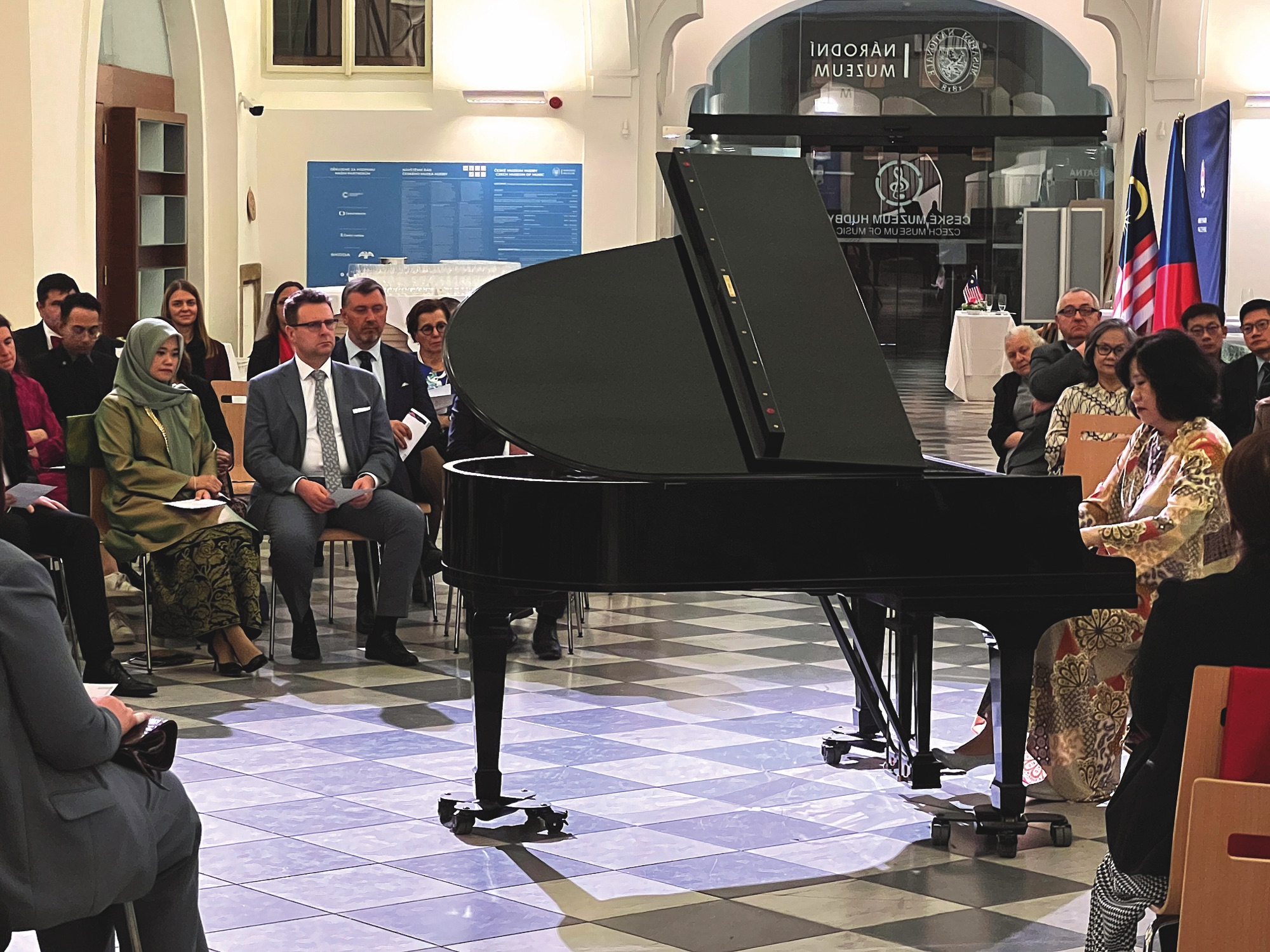
Concert in Prague at the 67th National Day of Malaysia
You won many international prizes recognising you as a great pianist. What are some of the highlights?
I was very honoured to receive “Pro Cultura Hungarica” presented by Hungarian Prime Minister Victor Orban during his official visit to China in 2014 in recognition of my contribution to the performance and dissemination of Franz Liszt’s music. In 2020, I was awarded a Special Prize for “International Culture Exchange” by Oesterreichischer Musik Theaterprize. Due to Covid 19, I was not able to travel to Salzburg for the award ceremony and later it was presented by H.E. Mr. Friedrich Stift, the Ambassador of Austria to China that year.
In Czech and Slovak Leaders, we strive to bring many interesting interviews with official Ambassadors of different countries. Do you feel like an emissary too? A musical Ambassador of Malaysia?
No doubt! I always wear traditional Malay costumes when I am on stage. I have improvised Malay songs, for example, “Getaran Jiwa” written by Malaysian legend artist P. Ramlee as well as various Malaysian folk songs.
After I became a professional concert pianist, my work and achievements have been acknowledged and recognized internationally. This is why I always think that I truly am a Music Ambassador, bringing people from different backgrounds and countries together through my concerts. I love to deliver the message of peace and joy every time I make music.
In China, you were appointed to the role of Artistic Director of a major art centre. What are your activities here?
I have been based in China since 2000 and became the Artistic Director of the Silk Road International Cultural Exchange Centre in 2019. The centre is located in the southeast part of Beijing, very close to the Daxing International Airport. With its size of 260,000 square meters, it is the biggest performing arts centre designed by Yoshinori Chidori of NIHON SEKKEI Inc. in China. The complex consists of an opera hall, a drama hall, a concert hall, two multifunctional halls and 14 exhibition halls.
We offer our own music and arts educational program, including a children’s choir. We have co-organized many festivals, competitions, performing and visual arts programs. Recently, we launched the International Arts Biennale on 25th October 2024. In our neighbourhood, we also run a drama park based on the Chinese famous literature “Dream of The Red Chamber”.
I truly hope that one day, artists and musicians from the Czech Republic can come to perform here. The Chinese audience love music composed by Dvořák and Smetana, but they are not very familiar with Czech traditional or contemporary visual arts.
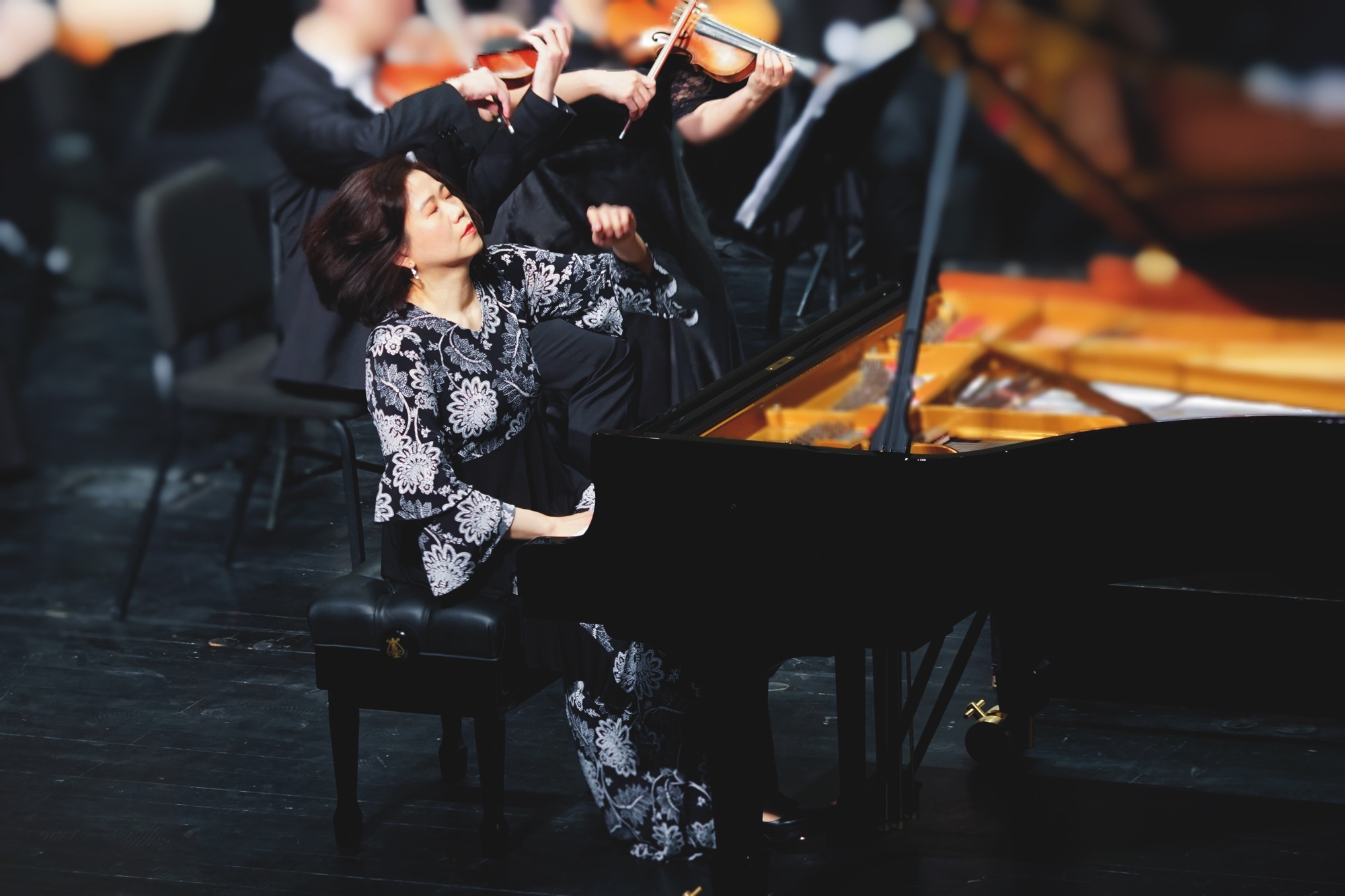
What is the most difficult part of being a musician, especially a woman musician?
Being a female musician, especially a performer who is active on stage, is indeed quite challenging. I had to learn how to balance life and work, I was a full-time pianist and mother when my twin daughters were very little. I could always practise on the piano while looking after them, this was the biggest advantage. But it was very hard when I left home for concerts in other cities or countries. I missed my children very much and so did they.
I felt very sad when I heard them crying over the phone.
Nevertheless, I felt all these challenges are tied together, hidden in my heart. There is power and strength coming from a mother´s love and I believe this is why the music played by a female pianist can touch deeper into audience’s hearts.
I do not like to play the piano like a male pianist. I think tenderness, shyness and beauty are so unique that they could never appear on stage through a male pianist.
As a successful woman pianist, can you give a piece of advice to the next generation of musicians?
Always work hard and enjoy music. Enjoy life no matter what, in all circumstances. Do not give up marriage or having children even though you decide to become a concert pianist. Family life would work, do not worry about the future or too many things, just continue to work hard on the piano because the life experience will become the inspiration and enthusiasm to move forward. Life can be easy or hard, but it doesn’t matter.
All souls must be filled with music and arts, not only food – and this is the most important mission of musicians. We are peace and joy makers. I believe that all musicians must be well respected, I do not like to rank musicians as famous or not famous.
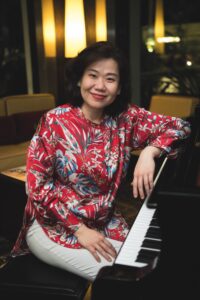
Prof. Claudia Yang
CLAUDIA YANG
is a Malaysian pianist. She began her piano studies at the age of five in Malaysia, as a 16-year-old she continued her studies under some great pianists including Dianko Iliew, Paul Badura-Skoda and Ludwig Hoffman at the University of Music & Performing Arts in Vienna, where she graduated as joint best pianist of 1997.
Claudia has collaborated with many world-leading orchestras, such as London Symphony Orchestra, Prague Symphony Orchestra, Vienna Chamber Orchestra, Slovak Philharmonic Orchestra, Lithuania National Symphony Orchestra, Moscow State Symphony Orchestra Cinematography, Novosibirsk Philharmonic Orchestra, MAV Symphony Orchestra, Simon Bolivar Symphony Orchestra of Venezuela, Northern Sinfonia, Malaysian National Symphony Orchestra, Philippines Philharmonic Orchestra, China National Symphony Orchestra etc. and appeared as a soloist in many concert halls in Europe and Asia.
During the 2021 Belt and Road – Great Wall International Folk Arts Festival hosted by the Ministry of Culture and Tourism of China and the Hebei Provincial Government, Claudia successfully directed the concert version of a famous Azerbaijan operetta “The Cloth Peddler” and established the Silk Road Philharmonic Orchestra formed by Chinese and foreign musicians based in China. President Xi Jin Ping wrote a congratulatory letter to the festival.
Between 2021and 2024, Claudia was appointed as Honorary Dean of Piano Department at Tianjin Conservatory of Music and since 2023, she has been the Chief Executive and Artistic Director of the Silk Road International Cultural Arts Center in Beijing.

